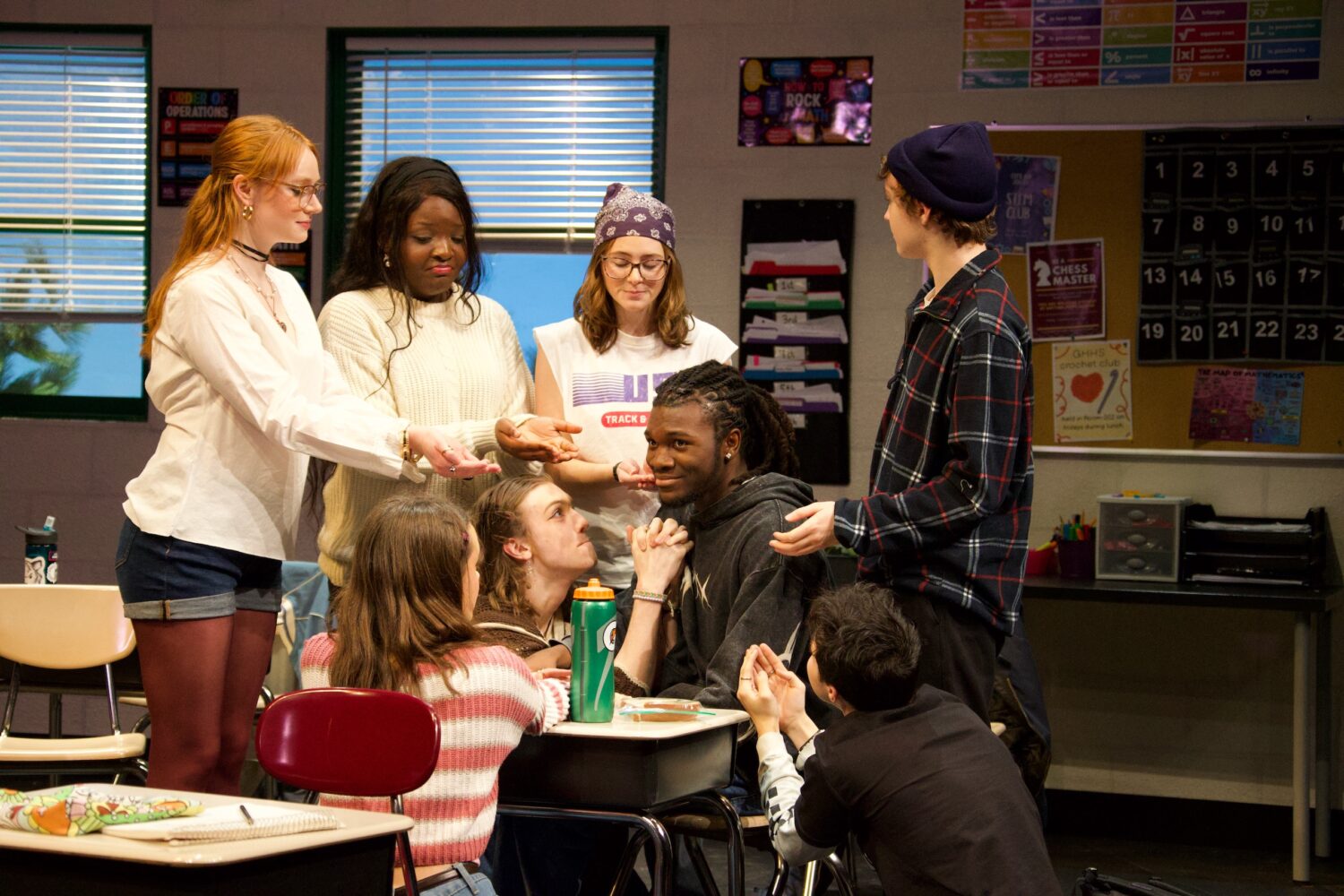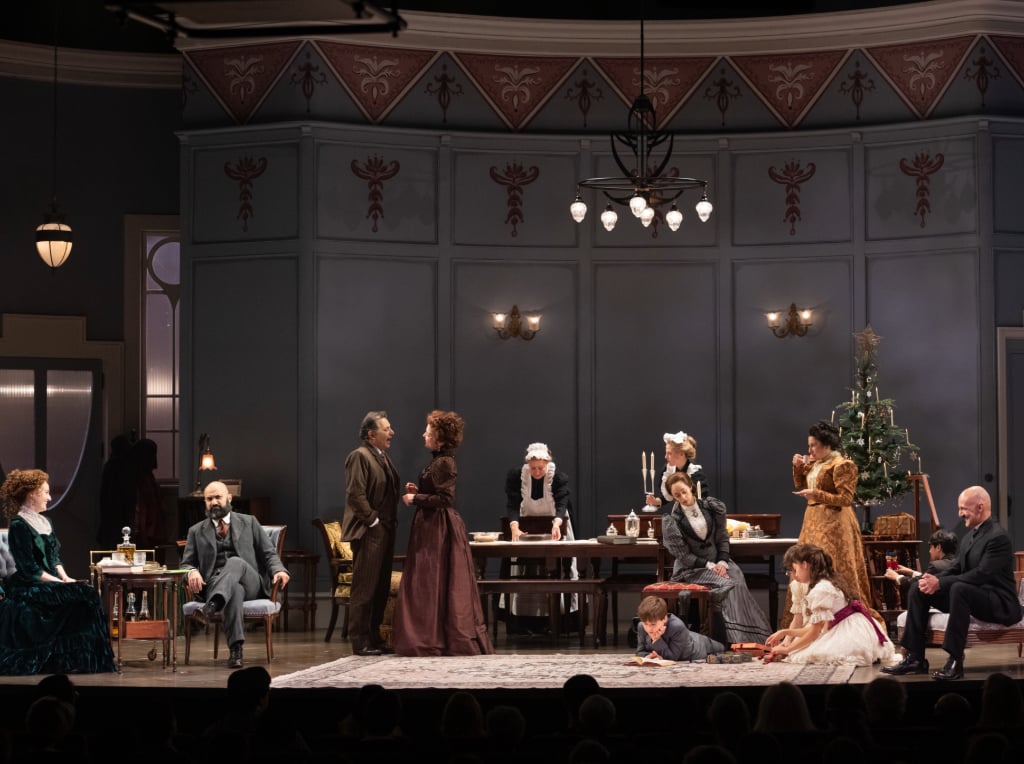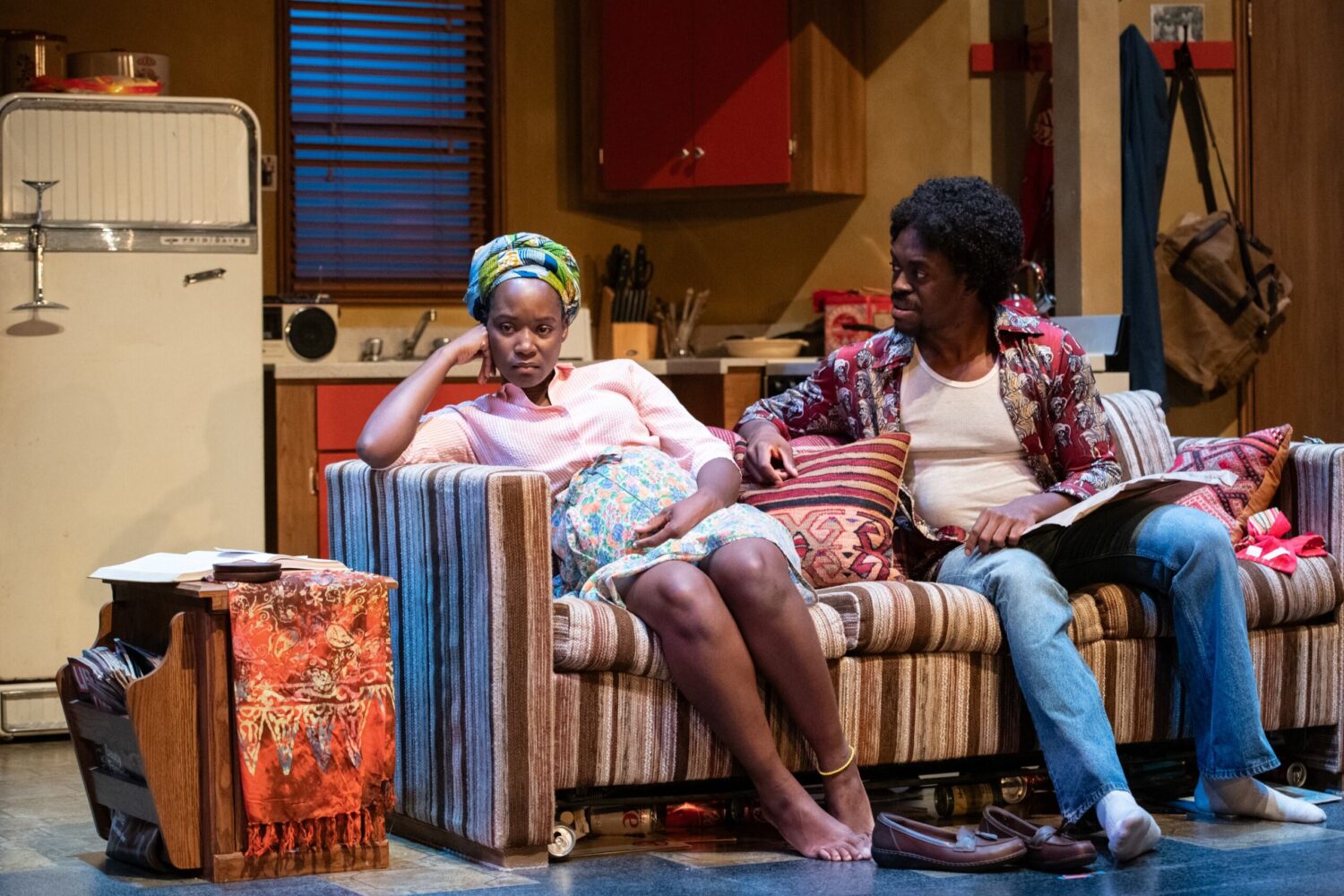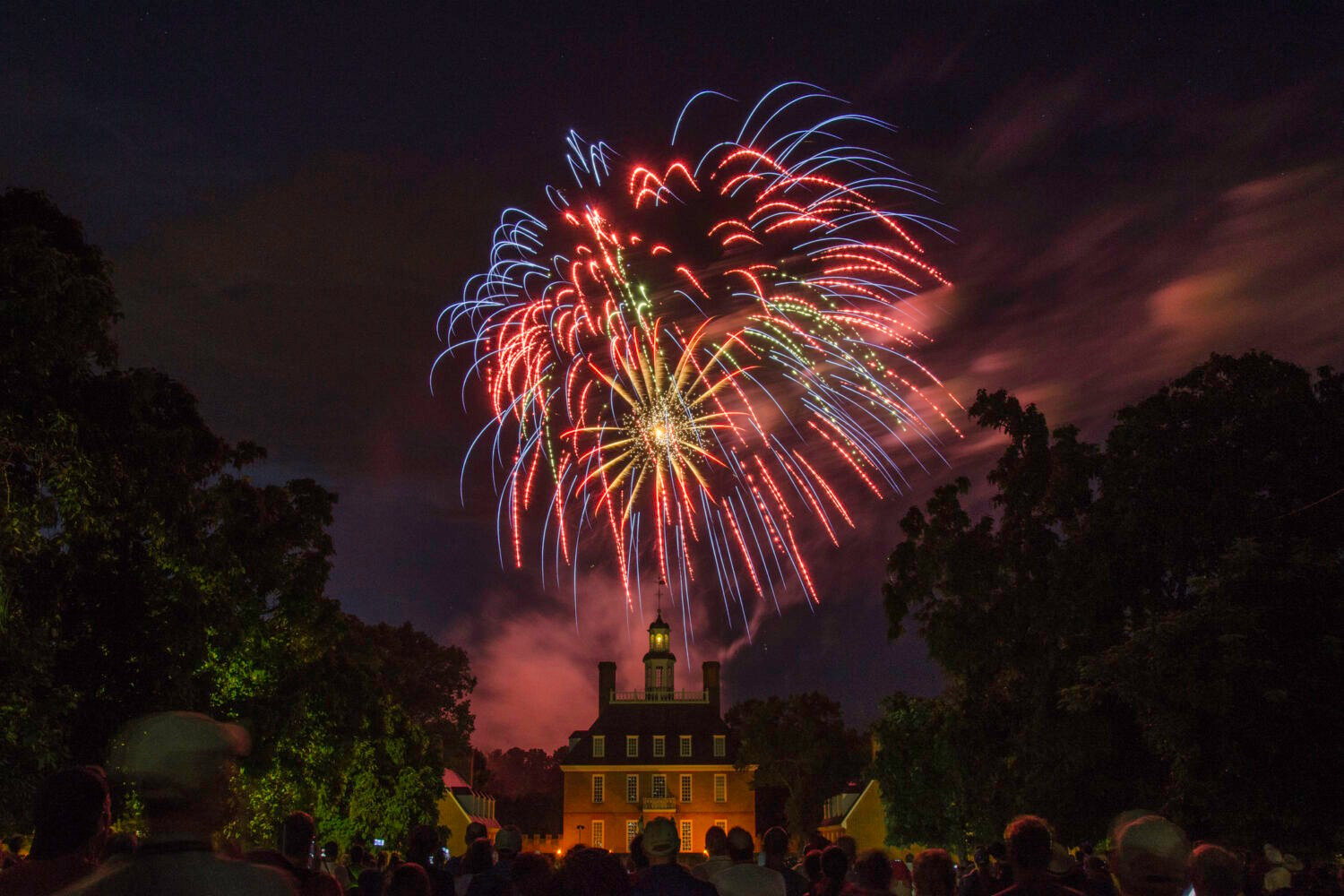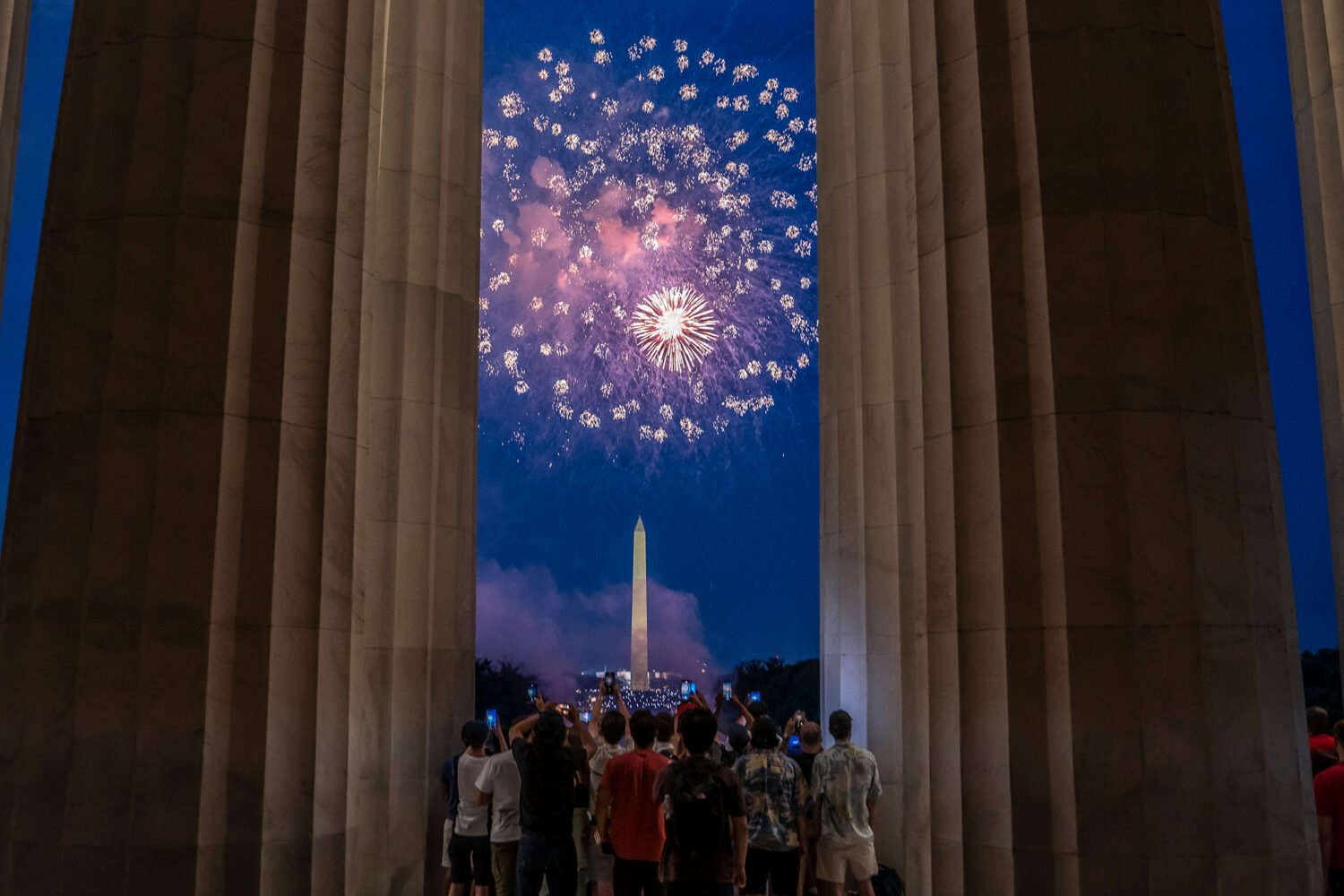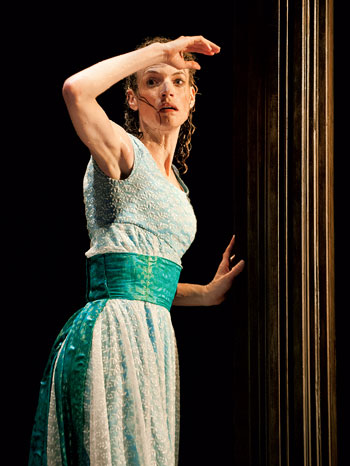
Metamorphoses—director/playwright
Mary Zimmerman’s interpretation of Ovid’s myths—comes to Arena Stage February 8 through March 17,
ten years after the show’s Broadway run earned her a Tony Award for directing. Zimmerman
is a member of Lookingglass Theatre Company and a resident director at Goodman Theatre,
both in Chicago, as well as a professor at Northwestern University. In Washington
she’s directed productions of
Candide, The Arabian Nights, and
Argonautika. Zimmerman is currently at work on an adaptation of
The Jungle Book, incorporating the Disney cartoon’s songs with elements from the original book by
Rudyard Kipling. We talked to her by phone about reviving
Metamorphoses, staging it in New York immediately after 9/11, and why she loves Washington.
What was the impetus for reviving
Metamorphoses
?
It’s Lookingglass’s 25th anniversary and we’re this small, scrappy company—or now
I suppose we’re midsize. But we wanted to celebrate by bringing back a signature piece
here in Chicago. There were a few theaters that wanted to take it, but the only one
I was interested in was Arena, because it’s something different for me—doing the show
in the round is a new challenge.
What first interested you in Ovid’s tales?
At Northwestern, where I teach, I wanted to do a show about myths using water. It
wasn’t until later that I realized all these myths were actually Ovid. All my life
I’d had a tremendous interest in the stories. My mother had a copy of Edith Hamilton’s
Mythology on her bookshelf with these pen-and-ink drawings that are seared into my heart. After
I finished with fairy tales in childhood I moved onto those. I think I sensed the
psychological and the adult content.
Where did the idea for the water come from?
The myths have everything to do with water, and water has everything to do with change—in
virtually every culture it’s a symbol of change. In Shakespeare everything goes through
a sea change, and water is symbolic in terms of crossing a rubicon, and of transformation.
In a lot of cultures it’s where you go to meet the gods, because they come out of
water. It’s a very mutable and mutating element, and it can metamorphose, and be a
solid or a liquid, so it works physically and emblematically.
Metamorphoses
played in New York right after 9/11 and seemed to resonate with people there. What
do you think it can say to contemporary Washington?
These stories have earned their keep because they’re consistently relevant. They’re
not a conspiracy by English teachers to keep us interested in the classics; they’re
around because they address the ongoing problems of being a person and going through
life—that is to say, unwanted, unlooked for change. Metamorphosis is a wrenching thing
that happens in our lives but that produces something new in each case. The archetypal
nature of the myths seems to lend itself to whatever’s in the air.
That said, our first preview off-Broadway in New York was September 16, 2001. That
night was one of only two times in my life where I experienced catharsis. You could
feel the audience go through the pity and the terror in the show and then somehow
be released from those feelings. About 15 minutes into the show a man says goodbye
to his wife because he’s going to make a sea voyage. It’s a very beautiful day, and
out of the blue this horrible storm comes and he’s killed. As he’s drowning he prays
to the gods, “At least let her find my body.” The immediacy of that in Manhattan on
that day was overwhelming, and as we approached those lines I pressed back in my chair,
thinking, “I can’t believe we’re going to do this now.” But the ancient tales tell
us it was ever thus, and life has survived and presses on in new and unrecognizable
forms, but it persists.
You come to Washington a lot. What do you like about working here?
I love Washington. I love walking down the street and seeing Supreme Court justices
at the deli. I love that Supreme Court justices come to my shows, even if they’re
not always the ones I would like to come, necessarily. I love that it’s small and
monumental at the same time. And a very good friend,
Natsu Onoda, who’s making a name for herself on the Washington drama scene, lives there.
The
Chicago Tribune
called this show your masterwork. Would you agree with that?
It’s the one I most identify with, but of course I’m always most in love with the
thing I just did and the thing I’m currently doing, and I hope to always be challenging
myself with the thing I’m doing next. I actually think
Metamorphoses is quite quirky. It flips between a fancy translation and a more colloquial form
of speaking. Often successes are full of odd flaws—a lot of operas are dramaturgically
terrible. People respond to the spirit of a thing, I’ve learned.
Metamorphoses
is at Arena Stage February 8 through March 17. Tickets ($40 and up) are available
via Arena’s website.
This article appears in the February 2013 issue of The Washingtonian.








